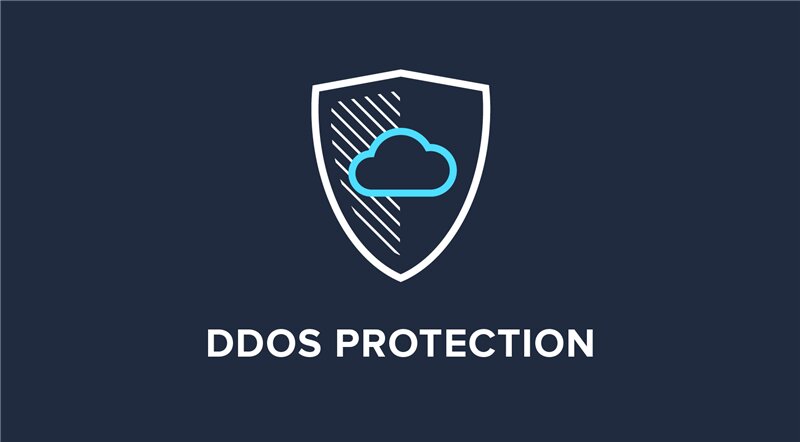- Call: 021 32789720
- Fax: 021 32785519

What does a Content Delivery Network (CDN) do and how does it works?
September 3, 2021What does SSL-Certificate mean? How it is beneficial for you and your business? Let us have a quick look at these questions. By understanding how it works, you will be able to get your online business to its maximum potential.
SSL-Certificate:
In the world of web security, one of the most important services an IP Sec certificate helps provide is that of how an SSL Certificate works. SSL stands for “secure socket layer.” To make sure visitors that are trying to access your website’s pages are secure, browsers offer different visual signals that signal EV information – anything from an unreadable green padlock to a branded red URL. SSL certificates have a secret key set: a private and a public key. These keys work with each other to establish an unbreakable encryption link.
This is a type of security mark that appears on the very top-right part of your web page. It usually starts with “HTTP” followed by the number. It is the number one thing that allows online users to verify the authenticity of any website. Without this, users would not be able to access any web page on your website or access any files or information about your online business.
Basically, whenever you create a web page, you are requesting that your visitor send his/her name and e-mail address along with an identification of his business so that you can enable them to gain access to your online store. Whenever a web user submits this information, your web page will then verify the identity of the user. If the details submitted are genuine ones, then the web page will display an “SSL Certificate” message. This will ensure that the user has indeed submitted the correct data.
Benefits of SSL Certificate:
So, now that you know what an SSL Certificate means, let us move on to the practical benefits that it provides. With an SSL Certificate, you are ensuring that the people who are visiting your website have trust in you and your online store. This is because when they visit your website, they will see the SSL Certificate and will know that you have implemented a security measure on your website. Most people tend to place high importance on security measures since this is what makes a company be popular in the market.
SSL Certificates can also be used for tracking visitors to a particular website. It will also prove the authenticity of a blog or a website. Most search engines also use certificates to determine where a web page originates from. A good SSL Certificate will help you in convincing the search engines to rank your web page higher over others.
Another benefit of having an SSL Certificate is that it helps in improving the ranking of your site in search engines. When a person types in a search phrase on a search engine like Google or Yahoo, the first few results will be based on the search that is performed. The webmasters and website owners will be able to choose which results to display by checking the quality of their SSL Certificates. The “s” in front of “SSL Certificate” means that the certificate has been signed by an “SSL” command and therefore is considered as an SSL Certificate.
Importance of SSL-Certificate:
It is also important to keep the integrity of our web pages protected. An “SSL” will ensure this. These commands prevent unauthorized access to our web pages. The “RSA” also ensures this. They will make sure that the content in our pages is not tampered with or edited in any way.
Many businesses and websites make their money through online transactions, and this means that their records must be safe from hackers. SSL, an encryption protocol, is used to protect the financial and personal information that can be transferred online. This method of encryption is more secure than other methods of securing data, which is why many people use an SSL Certificate. If you want to view websites correctly, you will need to ensure that you are viewing them via an SSL Certificate, and not a regular URL. The problem with regular URLs is that hackers are able to see the unencrypted contents within, so if you’re viewing anything on the internet, make sure that you are viewing is encrypted from! And have DDoS Protection, Email Protection, Malware Protection, etc.
An important question that comes to our mind is, how does the SSL secure socket layer help to increase the trustworthiness of a website? To enhance trustworthiness, your personal information must be encrypted and nobody will be able to read it. With SSL-Certificate, the private key used by the server and private browser is stored securely on the server and nobody can read it. The next important feature that is provided by SSL Certificate is identity verification. As you know, identity verification is very important as it helps to verify the identity of the user before they grant access to any website.

Business Benefits of SSL Certificate:
Certificates provide a third-party identity verification that proves your business’ authenticity at a higher level than just a domain name or an IP address. When someone types in a site address into their browser, they are presenting a challenge – a mathematical figure that the browser cannot solve. The challenge is for the private key to solve, making it impossible for anyone else to create the same challenge. With a private key, however, anyone can solve the challenge and make the site accessible – this makes SSL Certificates a vital tool for web authentication.
SSL-Certificate allows companies to ensure that sensitive customer information such as credit card numbers and personal data isn’t leaking onto the internet while they’re traveling. SSL uses an advanced type of digital lock to prevent tampering with documents during transmission over the internet. This allows companies to provide their customers with an unbroken chain of trust, ensuring that confidential information is protected even when the customer is away from the office. SSL-Certificate allows business to take their brand name anywhere they go, ensuring that their customer’s financial data is kept safe and secure no matter where they are.
A company that offers an SSL certificate can take its brand name and create an encrypted seal on any of its web pages. For instance, let’s say you own and operate a travel agency. You open up your website for business and begin to sell packages for your travel clients. One of your first screens is a Google map, with the red dot marking your destination displayed in the center. Right below that is your private SSL Certificate, which prevents anyone from intercepting your confidential information and rendering it worthless. Anyone can see the Google map and won’t be able to access your website to do harm.
Types of SSL Certificate:
The process of securing your websites is made much easier by two additional types of SSL certificates: the root certificate and the intermediate certificates. The root certificate is used as a foundation for all of your other SSL certificates, encrypting the private SSL information so that anyone who wants can make it accessible. Intermediate certificates act as markers that identify a specific SSL-Certificate so that if you’re changing the root Certificate, you’ll have the ability to revoke all of the intermediate certificates that are linked to the root certificate. Each SSL Certificate comes with an individual Certification Signing Certificate, which is a digital fingerprint of your IP address that verifies the authenticity of the site.
Buy SSL-Certificate:
We can also apply for an SSL Certificate in different ways. You will have to check with different companies so that you get the best deal. We can also make our own personal applications if we feel comfortable with them. When a webmaster needs an SSL Certificate, he can request one from a Web Certificate service provider. This provider will help the webmaster apply for an SSL Certificate.
A webmaster should never get an SSL Certificate from anyone else. The Internet Security Association is the sole authority on how these certificates should be used. An SSL certificate should only be used by the internal personnel of a particular organization. External people do not need one.
To create an encrypted connection, the first thing you should do is choose the right provider. There are different providers for different types of services. It would be best if you discuss with them and determine which one has the best features. You will also need to set up an account with them. Once the account is set up, you will be able to use the certificate to encrypt all the pages of your website. Using the SSL certificate feature of your web browser, an end-user will be able to see the encrypted page that is served to them.
Working of SSL Certificate:
You can use the digital signature included with every SSL-Certificate to prove ownership of a site, as well as to hide your real identity behind a pseudo-identity. If you’ve ever been to a site that displayed an unencrypted padlock next to their URL, then you’ve seen an example of the intermediate padlock. The padlock contains the random number that is encrypted, and this is used to encrypt the sensitive information contained in the URL. Your client browser will only be able to make sense of the information in the padlock, making it impossible for others to access the contents of the URL.
In order for web browsers to make sense of the padlocks, they make use of an encrypting algorithm, which takes each URL and breaks it down into its component parts, and then decrypts the part sequence by applying an algorithm. The result is a list of lines of code that make up the encrypted URL, and these make up the readable portion of the URL. This is why browsers such as Internet Explorer and Firefox, as well as other proprietary browsers, don’t support the standardized SSL protocol. This means that if you want to view a website, you will need to either edit the URL using a web editor or change it directly in your browser’s HTML code. However, this is where the importance of using SSL Certificate starts!

Key Features of SSL Certificate:
- SSL certificates are used to show that your website is safe to do business on. SSL certificates make an encrypted link and establish trust between you and your customer. One of the key elements of an online business is building a trusting environment where potential clients feel comfortable placing orders. SSL certificates make that foundation of trust complete. But what exactly is an SSL certificate? It’s a security standard that helps protect the identity of your website from unauthorized access.
- SSL, an abbreviation for Secure Sockets Layer, is a type of encryption technology that enables you to transmit confidential information between web servers and customers over the Internet. The transmission takes place using digitally signed documents. The digital signature ensures the authenticity of the information passed between the two parties. SSL-Certificate helps prevent hacking. When a website is protected by SSL, it creates a secure environment where your customer can make secure transactions while you don’t have to worry about unauthorized access to your information.
- The digital signature is created by the web browser when your business website is accessed via the Internet. The web browser first analyzes the request sent by the user and checks the integrity of the requested information. If the requested information looks suspicious, the web browser encrypts it so only authorized parties can see it. The SSL Certificate ensures that your information cannot be read automatically by anyone else.
- SSL Certificate ensures that the information entered in the form can be accurately matched with the right person. That way, the risk of fraudulent activities like hacking and other cyber crimes will be prevented. Therefore, SSL Certificates are used to provide an improved and secured online experience for every end-user. Moreover, the increase in the number of cybercrimes has made it even more important that people make sure that their information is protected from being hacked.
- Another benefit that comes with the use of SSL is the use of Digital Signatures. This is something that is not very common with other forms of certificates. What makes this feature special is that the digital signature that is embedded in the data file will serve as an assurance that the certificate was issued by the organization that you trust. Another important feature is the fact that SSL-Certificate provides the end-user with a stronger and more secure link to the webserver. So, whether you are using a normal web browser or a more secure and private web browser such as a web guard, you will always get added benefits and security from the use of an SSL Certificate.
Conclusion:
We can check out more about the SSL Certificate by visiting their Website. However, they are not responsible for any information obtained from this site. Make sure that you do not obtain any improper or false information through this site. For any questions that you have, you can check with your Internet Service Provider.


